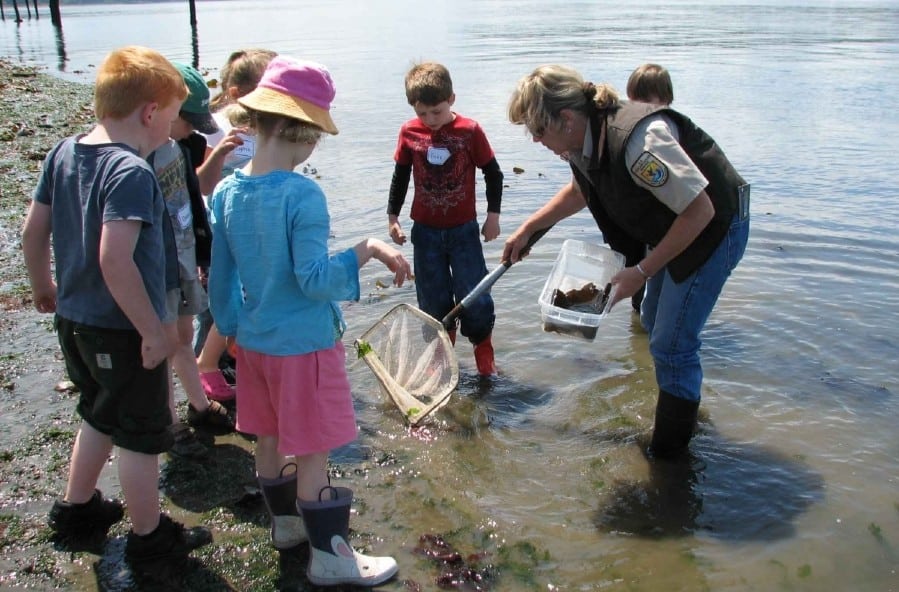Governments need to double down on investments and innovation in educating youth and communities about the environment if future generations are to be able to respond effectively and with appropriate urgency to the climate emergency, according to experts, including Nicole Ardoin, an associate professor at the Stanford Graduate School of Education.
In the recent Environmental Education Research article(link is external), Ardoin and her colleagues write that the deepening environmental crisis will continue to worsen if there is not significant support and investment in environmental and science education, researchers warn. Reforms are needed to help youth develop the knowledge, skills, and supportive networks to address the complex, interlinked, and dynamic issues of our contemporary situation.
“Only by investing in environmental and sustainability education—and especially approaches that engage entire communities in meaningful ways, across the lifecourse—will it be possible to radically alter our current trajectory, and thus demonstrate to ourselves and future generations that sufficient heed was given to our warnings,” Ardoin said.
The experts argue that local, national, and international governments, as well as non-profit civil society groups, must direct more funding to innovative educational approaches that respond to consistent warnings about trends in the deteriorating state of ecosystems, biodiversity, and climate, among other environmental issues.
Together with Alan Reid from Monash University, Justin Dillon from the University of Exeter and Jo-Anne Ferreira from the University of Southern Queensland – senior editors of the journal and long-time international collaborators – Ardoin writes that environmental education is a “necessary cornerstone for future social and environmental changes.”
Environmental and science education helps people develop robust understanding of systems, develop skills for collaboration and problem-solving, and respond appropriately to warnings about the climate emergency. They add that consensus on our environmental predicaments is not simply a matter for natural and biophysical scientists: The social sciences, humanities, arts, and society as a whole are all critical to addressing these issues holistically. Only then will contemporary calls by organisations such as the United Nations Environmental Programme (UNEP) and UNESCO, which emphasise that environmental education must ‘be a core component of all education systems at all levels by 2025’, have a chance of gaining the multilateral and multileveled support the situation so urgently requires.
The academics highlight international surveys that show many governments continue to fail to support and invest enough in environmental and sustainability education across pre-school, school, college and university settings. Professor Ferreira says, “The research base is clear about the superiority of whole-school approaches to quick curriculum fixes for addressing topics such as the climate emergency. The existential risk aspects also mean we need to look at investment and innovation in lifelong learning and non-school based provision, alongside examining the focus of current initial teacher education and continuing professional development.”
Professor Reid noted that, “The popularity of outdoor education centres and activities are testament to the broader base of interest in environment and nature, as well as when arts, media and civil society addresses the climate crisis. Flagship environmental and science communication documentaries by the likes of David Attenborough examining the causes and effects of the climate emergency whet many people’s appetites for understanding more from credible sources. Sir David’s own learning journey in coming to understand the urgency of the situation underscores the rich learning opportunities available to us all, particularly in the run up to COP26 in Glasgow.” He added: “Ensuring any form of environmental education is relevant, coherent, fit for purpose, funded appropriately, and available to current and future generations within and beyond the curriculum will be crucial to addressing sound and pertinent warnings from scientists.”
Professor Dillon said: “Global leaders should be discussing how to reimagine, recreate and restore environmental education to reduce the consequences of the environmental crisis. Countries should embed environmental and science education throughout society in ways that make sense locally.”


